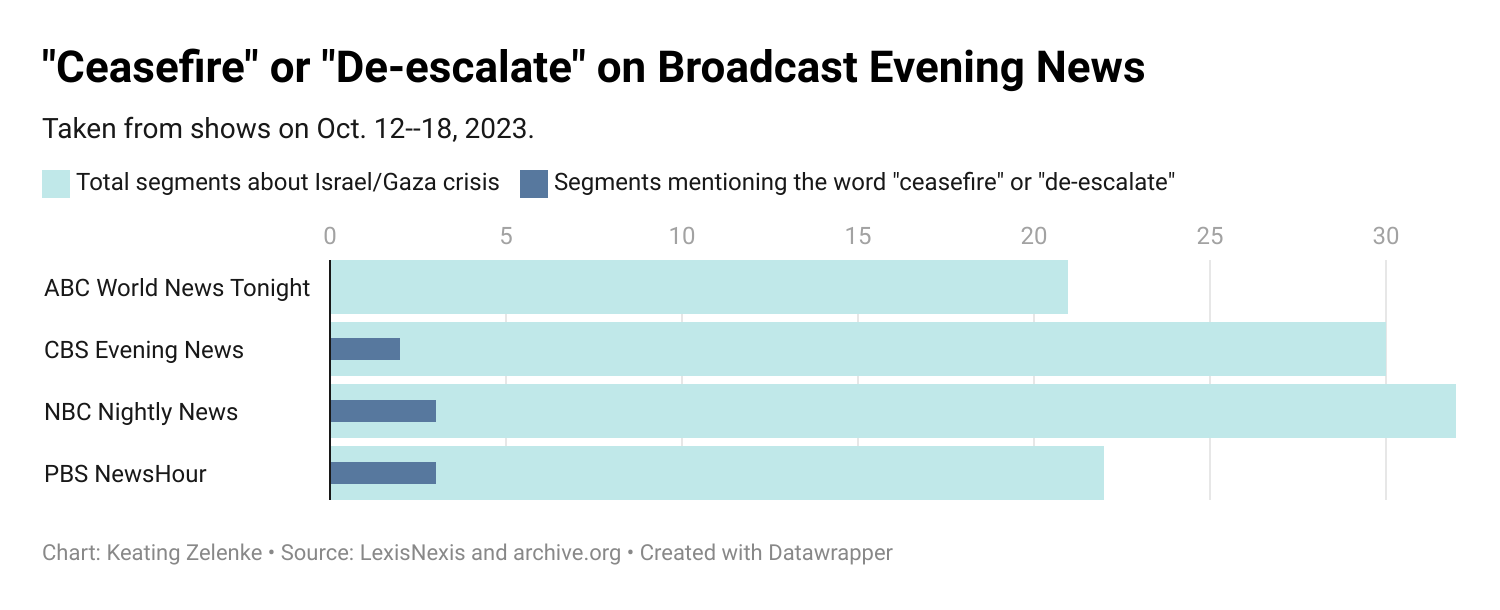Internationally, the head of the UN, the UN human rights expert on Palestine, a growing list of scores of legal scholars, and hundreds of human rights groups—including Save the Children, Oxfam and Doctors Without Borders—have likewise spoken out for a ceasefire.
But the Biden administration has actively tried to suppress discussion of de-escalation. HuffPost reported on October 13 that an internal State Department memo instructed staff not to use the words “de-escalation/ceasefire,” “end to violence/bloodshed” and “restoring calm” in press materials on the Middle East.
At the UN Security Council, a Russian resolution calling for an immediate ceasefire was voted down last Tuesday by the US, Britain, France and Japan; a Brazilian resolution the next day seeking “humanitarian pauses” in the violence was vetoed by the US alone. (On October 24, however, Secretary of State Antony Blinken said that “humanitarian pauses must be considered” to bring help to Gaza civilians—ABC, 10/24/23.)
Broadcast nightly news
US television news outlets appear largely to be following the administration’s lead, minimizing any talk of ceasefire or de-escalation on the air. FAIR searched transcripts of the nightly news shows of the four major broadcast networks for one week (October 12–18) in the Nexis news database and Archive.org, and found that, even as the outlets devoted a great deal of time to the conflict, they rarely mentioned the idea of a ceasefire or de-escalation.
(Emphasis original.)

